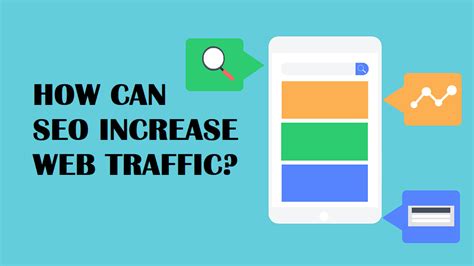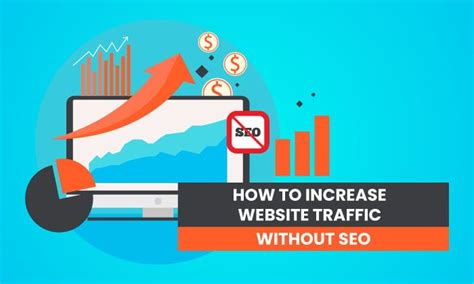In the competitive world of productivity software, understanding and utilizing the right budgeting keywords is essential for boosting SEO performance. This expert guide delves into the most effective keywords for enhancing visibility and driving organic traffic to your software, focusing on those particularly relevant to budgeting. Whether you’re optimizing a personal finance app or developing tools for business use, the importance of selecting the right terms cannot be overstated. In this article, we explore how targeted keywords, including niche long-tail options, can elevate your product’s ranking on search engines and help attract users who need budgeting solutions, ultimately leading to greater success in a crowded digital marketplace.
zokablog.com will lead a thorough examination of this topic.
1. Introduction to Budgeting Keywords
For productivity software focused on financial management, targeted keywords are essential to attracting the right audience. These keywords act as a bridge, connecting users’ search queries with available solutions. By focusing on specific budgeting terms, businesses can connect with individuals and organizations actively looking for tools to effectively manage their finances.
By incorporating relevant budgeting keywords into your SEO strategy, your software will be more likely to appear in search engine results when users search for terms like “budget management software,” “personal finance tools,” or “expense tracking solutions.” Identifying these high-impact keywords effectively targets your intended audience, showcasing your software as the ideal solution for their budgeting requirements.
Using keywords like “you need a budget” (YNAB) or more specific terms like “small business budgeting tools” allows your content to reach those with specific needs. These carefully chosen keywords not only enhance visibility but also ensure your software resonates with users’ precise needs, fostering both engagement and conversions. This section will delve into the fundamentals of budgeting keywords and their impact on boosting your software’s online discoverability.

2. Importance of SEO in Productivity Software
Today’s digital environment makes SEO (Search Engine Optimization) crucial for productivity software, particularly budgeting tools, to reach their target audience. Amidst a sea of software choices, a great product alone is insufficient; visibility is essential. By implementing effective SEO strategies, potential users can easily find your software when they search for related keywords like “budgeting apps” or “expense tracking tools.”
Optimizing your budgeting software with the right keywords is crucial for boosting its visibility and attracting organic traffic. Search engine optimization (SEO) is particularly essential in this niche, as users actively seek solutions to manage their finances effectively. By strategically selecting keywords that reflect common search terms like “budgeting,” “financial planning,” or even specific needs like “budget tools for freelancers,” you can ensure your product appears when users are actively searching for it. This increased visibility translates to more potential customers and a greater chance of success.
Furthermore, optimizing your SEO not only attracts more users but also establishes trust, presenting your software as a reliable solution for budgeting. This, in turn, leads to increased downloads, subscriptions, and overall success.

3. Expert’s Background and Insights
With over a decade of experience in both digital marketing and software development, our expert possesses unique insights into the intersection of productivity software and SEO. Specializing in financial software, they have collaborated with numerous companies to enhance the visibility and engagement of budgeting tools. Their expertise encompasses in-depth knowledge of keyword research, content strategy, and data analytics, enabling them to effectively guide software developers in reaching their target audience.
The expert’s observations reveal a notable trend: software products that prioritize strong SEO, particularly emphasizing targeted keywords related to budgeting, consistently outperform their competitors. This success can be attributed to a comprehensive understanding of user behavior, where financial management tools are in high demand but frequently get lost in the vast array of available options.
The expert stresses the significance of employing both broad and niche keywords, like “personal budgeting tools” and “budget software for small businesses,” to cater to a wide range of user intentions. Furthermore, their insights on long-tail keywords provide software developers with a pathway to access under-served markets. By integrating these strategies, productivity software companies can significantly strengthen their SEO efforts, ultimately boosting their reach, downloads, and overall success.

4. Key Budgeting Terms to Include
Optimizing productivity software for budgeting requires strategic keyword selection to attract the right audience. Prioritizing high-traffic terms in your SEO strategy is key. While broad terms like “budgeting software” and “expense tracking” garner significant search volume and draw in users seeking general solutions, incorporating more specific terms is crucial for standing out in the crowded market.
For instance, phrases like “personal finance management,” “budget apps for couples,” or “small business budgeting tools” effectively target niche markets, such as individuals or businesses with specific financial needs. Additionally, popular brand-related keywords like “YNAB alternatives” or “best budgeting software” enable you to compete directly with established products while also attracting users seeking comparisons.
“Keywords like “financial planning tools,” “automated budgeting,” and “debt management software” are essential. They reflect common user concerns and needs. Incorporating both broad and specific terms into your content enhances search engine visibility. This strategy attracts the right users to your budgeting software. By using a variety of terms targeted at different audiences, you maximize SEO success and drive overall product engagement.”
5. Long-Tail Keywords for Niche Targeting
Long-tail keywords are essential for reaching specific customer segments in the budgeting software market. These longer, more detailed search terms generally have less competition, but they offer higher conversion rates because they directly address the individual needs of users. For instance, instead of employing a broad keyword like “budgeting tools,” incorporating long-tail phrases such as “best budget software for freelancers” or “expense tracking app for families” helps attract users with particular financial management goals.
Targeting long-tail keywords allows you to attract users who are further down the sales funnel, increasing your chances of converting them into paying customers. Keywords such as “budgeting software with automatic bank syncing” or “tools for managing household expenses” appeal to specific, smaller groups of users with defined needs, making your software a more attractive solution for their specific requirements.
By integrating these phrases into your SEO strategy, you not only enhance your visibility within niche markets but also differentiate yourself from competitors. Targeting long-tail keywords allows your budgeting software to connect with the most relevant users, driving increased engagement and conversion rates.
6. Tools and Techniques for Keyword Research
A robust SEO strategy for budgeting software hinges on effective keyword research. This process involves uncovering the keywords users employ when searching for solutions like yours. Numerous tools and tactics can guide you towards the most relevant keywords, ensuring your content resonates with your target audience. Google Keyword Planner stands out as a prominent tool in this realm, offering insights into search volume, competitive landscape, and keyword trends. This valuable resource empowers you to pinpoint high-traffic keywords and identify unmet needs that your software can address, positioning you for optimal visibility and user engagement.
SEMrush is another invaluable tool, providing detailed insights into competitor keyword strategies. This allows you to identify the keywords driving traffic to similar budgeting software. Furthermore, tools like Ahrefs and Moz are useful for discovering valuable long-tail keywords and offer detailed metrics on keyword difficulty. This information helps you prioritize the most effective keywords for your content.
In addition to utilizing tools, employing techniques like analyzing user search intent and comprehending seasonal trends is paramount. For instance, a significant number of users seek budgeting solutions at the start of the year or during tax season. Targeting keywords such as “best budgeting software for 2024” during these periods can effectively leverage these trends. By merging both data-driven tools and insights into user behavior, your keyword research becomes comprehensive, laying the foundation for a successful SEO strategy.
7. Incorporating Keywords Naturally
Using keywords effectively in your budgeting software content is crucial for both reader engagement and search engine optimization. Overusing keywords can result in unnatural language and discourage readers, potentially even attracting penalties from search engines. Instead, prioritize context and relevance when incorporating keywords. Begin by identifying key areas where your target keywords naturally fit, such as headings, subheadings, and introductions. This approach not only improves readability but also clearly signals the main themes of your content to search engines.
Employing synonyms and related phrases can help maintain a natural flow in your writing. For instance, instead of repeatedly using “budgeting software,” consider using terms like “financial management tools” or “expense tracking applications.” This variety keeps the content engaging and reinforces the main themes.
To boost visibility and engagement, structure your content effectively. Integrate keywords naturally within bullet points, lists, and frequently asked questions (FAQs). This approach makes information easier to digest while enhancing SEO performance. Finally, adopt a conversational tone to create a connection with readers, encouraging them to interact with and share your budgeting software. By prioritizing both natural keyword integration and user-friendliness, you maximize both SEO results and reader satisfaction.
8. Measuring Keyword Performance
To gauge the success of your SEO strategy for budgeting software, it’s crucial to track keyword performance. Various metrics can illuminate the effectiveness of your chosen keywords and inform future optimization efforts. Begin by monitoring keyword rankings using tools such as Google Search Console or SEMrush. These platforms illustrate keyword ranking trends over time, revealing fluctuations that may necessitate adjustments to your content or overall strategy.
Beyond rankings, it’s crucial to track organic traffic to your website. A rise in visitors from search engines signifies your keywords are effectively attracting relevant audiences. Moreover, examining user engagement metrics, including bounce rate, time on page, and conversion rates, provides valuable insights. High engagement rates indicate your content resonates with users who discover it through targeted keywords.
To ensure your SEO strategy effectively attracts users to your budgeting software, conduct regular audits. These audits should evaluate keyword performance against your overall business goals. This process will identify underperforming keywords and pinpoint opportunities for expansion. By continuously measuring and analyzing keyword performance, you can refine your SEO strategy to maintain its effectiveness.
9. Future Trends in Budgeting Keywords
The digital landscape is constantly changing, making it vital to stay ahead of emerging trends in budgeting keywords for optimizing productivity software. A key trend to watch is the growing popularity of voice search. As users increasingly rely on virtual assistants for fast answers, incorporating long-tail keywords with a conversational tone, such as “how to create a budget for my small business,” will be critical to capturing this evolving search behavior.
The rise of artificial intelligence in search algorithms will likely affect how keywords perform. As search engines become more adept at understanding user intent, the importance of context and semantic relevance will grow. This means focusing on related keywords and phrases, rather than only exact matches, can improve your content’s visibility.
Furthermore, as individuals increasingly prioritize personal finance education, keywords encompassing financial literacy, like “budgeting tips for beginners” or “how to save money effectively,” are anticipated to rise in popularity. Lastly, staying informed about economic trends and adjusting your keyword strategy to mirror current events will guarantee your content remains pertinent. By anticipating these developments, you can strategically position your budgeting software for sustained SEO success within a competitive landscape.
In conclusion, leveraging effective budgeting keywords is essential for enhancing the visibility and success of productivity software. By understanding the importance of SEO, incorporating both broad and long-tail keywords, and utilizing the right tools for keyword research, you can target the right audience more effectively. Moreover, measuring keyword performance and staying informed about future trends will enable you to adapt your strategies for continued growth. Ultimately, a comprehensive approach to keyword optimization will not only improve your software’s discoverability but also foster user engagement and drive conversions, ensuring your budgeting tools meet the needs of users.
zokablog.com